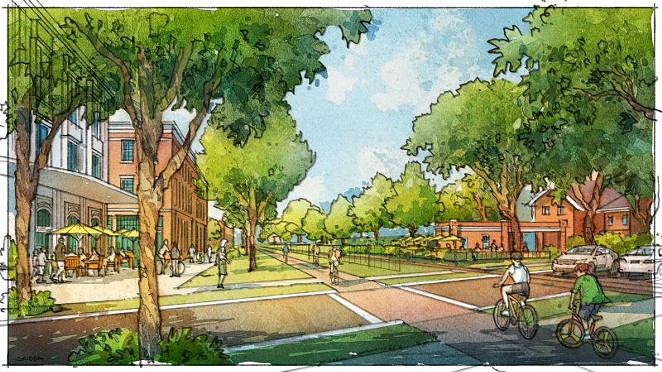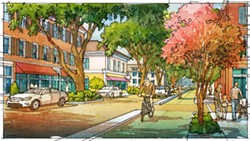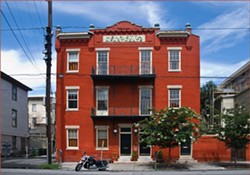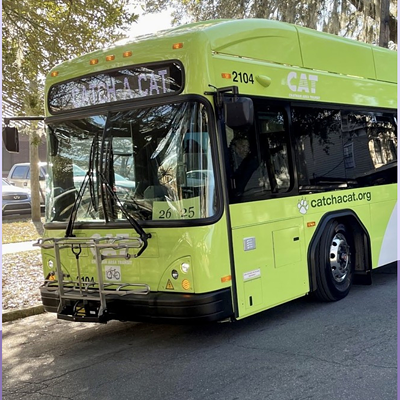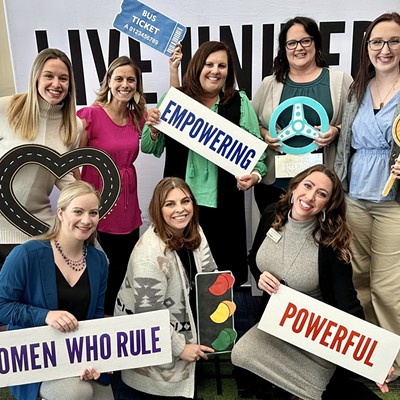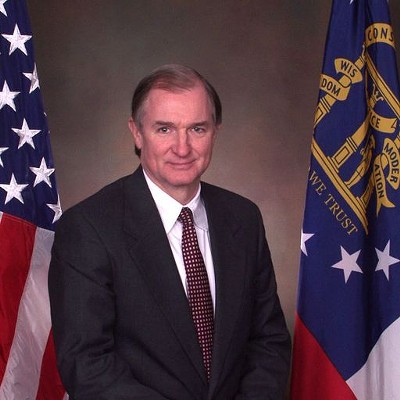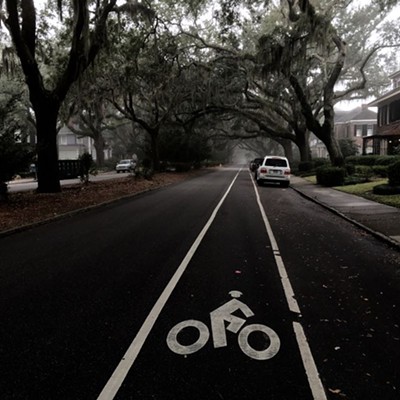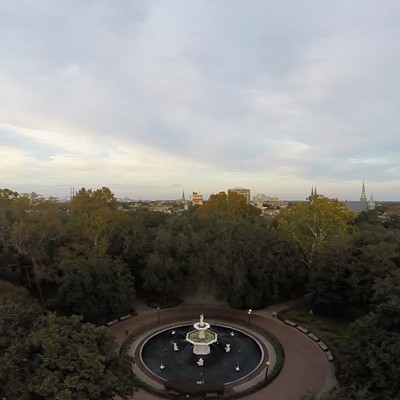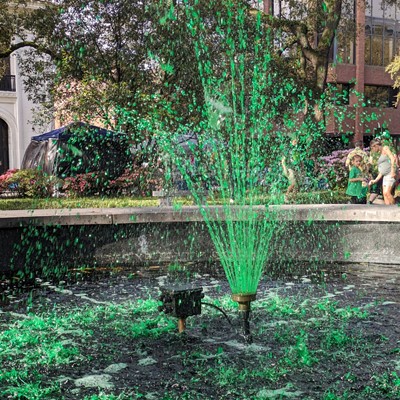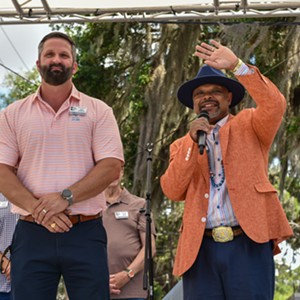IT’S A tired cliche that the choice of a City Manager is a consequential choice. In cities like Savannah, with its Council-Manager form of government, the City Manager is THE most important and powerful person in local government.
The City Manager, not the Council, not the Mayor, has the direct and daily ability to implement programs and policies.
It’s far different than say, Charleston, which has a Strong Mayor form of government. In that system, the Mayor has direct authority over department heads and thus implementation of policy.
Not so in Savannah, and frankly, the majority of American cities. The City Manager fulfills that role after being hired by the City Council.
In my tenure as Executive Director for the Savannah Development and Renewal Authority (SDRA), I worked with two City Managers: Stephanie Cutter and Rob Hernandez.
I’ve also worked directly with City Managers in numerous other cities around the country, whether as a consultant, an advocate, or an engaged resident.
Admittedly, my thoughts in regards to Savannah are colored by my experience with SDRA, and especially by our citizen-driven plan for greater downtown, called Downtown Savannah 2033 (www.sdra.net).
You might love that plan, or hate that plan, and that’s fine - everyone has their perspective. But the time I spent on the Plan and over the years working closely with Savannah’s citizens and City Hall gave me an awful lot of insight into how the City works, and how it can work.
There’s a few obvious characteristics that are important to any City Manager in Savannah, which we might as well dispose of quickly. Those include the ability to work with a diverse community, understanding the importance of a historic city, and a personality that is confident and thick-skinned.
Savannahians have opinions - many opinions - about just about everything, and are not the least bit shy about sharing those opinions. That’s a good thing! But there are those who aren’t prepared for the level of civic passion that exists.
I can tell y’all from much experience - it simply doesn’t exist that way everywhere. A leader in Savannah needs to be willing to listen closely and hear a lot of different opinions, but also not to be dismayed or surprised by the level of open and critical civic conversation.
That conversation is going to inevitably include a lot of opinions he/she won’t want to hear, but that’s life. Savannah is not a monolithic place with one set of issues nor one group of people.
But there are some other less obvious, but critical, elements to the City Manager job, too, that merit discussion. I’d refer to the broad principles of the 2033 Plan, since they directly translate to what a City Manager can be doing on a daily basis.
I find it’s important to ground some thoughts in the 2033 Plan since it included the voices of hundreds of citizens, countless hours of volunteer time and extensive professional advice from people that care deeply about the city. And that includes myself, though I no longer reside in my adopted hometown.
So here are a few key takeaways, from my perspective:
1. Make connections. By this I mean tangible, physical connections throughout the city as it changes and grows. Yes - I mean streets, sidewalks, bike paths, and transit lines! Those physical connections (which haven’t often happened well in recent decades), make the deeper, intangible human connections possible. Physical connections bind a city together better as one, instead of it being a loose-knit collection of disconnected communities, where people feel separated.
2. Value the unique DNA of Savannah. Savannah has physical assets (cared for by city government) that many other cities just don’t have, and for which people are envious. In this case, I’m referring to the exceptional amount of land set aside for green, public space. This green space that belongs to all, from our parks and squares down to our medians, is what makes life in the greater downtown area so livable and so desirable. But it’s also precious, in need of great caretaking, and especially in need of expansion beyond what exists today. This was a major theme of the 2033 Plan, and I urge any future City Manager to look at our suggestions there for adding green space outside of the Landmark District.
3. Emphasize active transportation. What the heck does that mean? It means building off Savannah’s strengths as a place where people can easily and enjoyably walk and ride a bicycle to many destinations. Whether for pleasure or out of necessity, active transportation is critical now, and certainly for the future. Anyone notice this at all during 2020?? Follow the lead of Healthy Savannah to “make the healthy choice the easy choice” and find whatever resources are possible to implement Tide to Town (which, by the way, was birthed through the 2033 Plan process). Some choices here will be uncomfortable today, as it inevitably changes the prioritization of traffic speed over all else. And that leads to the next point...
4. Prioritize quality of life over commuting time. I know some will definitely disagree with this sentiment, especially those that wish to live far away from downtown and still enjoy all its benefits by being able to commute in or out quickly. However, changing this mindset is fundamental to extending the excellent qualities of the Landmark District and building a more equitable city. A proactive City Manager can work to reduce the decades-long emphasis on Savannah’s streets as mini-speedways for commuters. The emphasis must be on those living in neighborhoods, not those moving through them.
5. Legalize Savannah’s historic building types. Anyone who has ever tried to build a small building in the greater downtown area has been confronted by a series of regulations that make it difficult, to say the least, to essentially replicate what is already built. NewZO makes some great strides, but its adoption doesn’t mean all necessary zoning reform is done. The key to long-term, durable affordability lies in the “missing middle” types of buildings (house-sized structures that might contain anywhere from two to twelve residences - https://missingmiddlehousing.com/) that exist throughout the many historic neighborhoods surrounding the Landmark District. “Legalizing” those, and making them easy to build more of once again is an important step as the city continues to revitalize.
All of these are measurable objectives an engaged City Manager can accomplish, and do so with surprising speed if he/she has Council support.
Why so much emphasis on the physical development of the city? While a city government does do many things, there are always two areas that dominate budgets and agendas: public safety and development.
Development and property value is what provides the tax base to pay for public safety and all the other services we want our city government to perform. I don’t say that to say all development is good, and people should support anything that increases values.
Far to the contrary - some development can be bad and degrade the overall value of a city or neighborhood. Understanding this and the math of development was fundamental to the Savannah Urbanism Series (http://sdra.net/planning-initiatives/the-savannah-urbanism-speaker-series/), and in the 2033 Plan we outlined how a simple, “Savannah-based” approach to redevelopment still generates a windfall of revenue for all local governments.
But if planning and development aren’t done well, then a city will never have the money to invest in human resources and programs that we all desire.
Lastly, there’s two critical operational mindsets that are helpful and were mentioned in the 2033 Plan: think for the long-term, but don’t be afraid to experiment and act quickly. Don’t succumb to paralysis by analysis.
Savannah has had SO many plans in the last two decades. 2033 was an attempt to coalesce many into one, for the greater downtown area. With even less resources likely in the next few years, it’s a great time to find simple, incremental steps that can be taken from the numerous plans and test them out.
Some will fail, maybe miserably. That’s ok. It’s a learning process.
City government must be allowed to make mistakes, too, as we all do in our own lives. But if mistakes can be made inexpensively and quickly, then it allows time to learn, recover, and test other ideas.
City Managers come and go, and their selection is crucially important for a well-functioning city government. But more important are the values and involvement of the citizens.
Regardless of what happens, I know Savannah will continue to be a great community, because there’s great passion in the people. With a focus on a handful of key items, and a focus on extending all that is excellent about the Landmark District to more neighborhoods, it can be even better, and better for far more people.
Take care Savannah, and best wishes.

